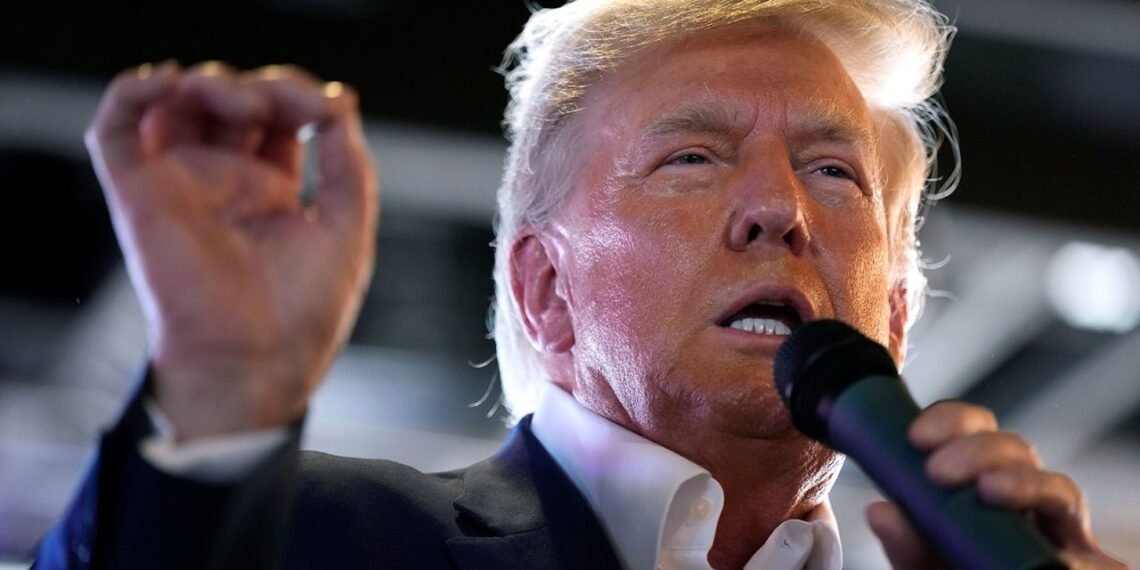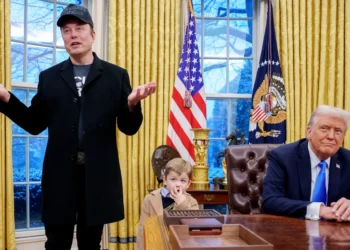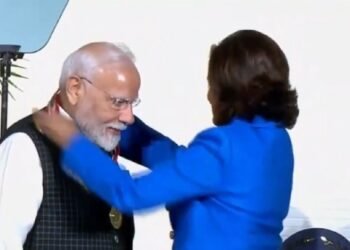Nations worldwide are condemning Trump’s “Liberation Day” tariffs, warning of a potential trade war and economic damage. The tariffs, impacting steel, automobiles, and agriculture, have undone decades-old trade agreements.
BY PC Bureau
Several U.S. trading partners across the globe, including staunch allies like Australia, Canada, Britain, Spain, and Italy, have reacted strongly to President Donald Trump’s newly imposed “reciprocal tariffs,” vowing swift retribution while simultaneously attempting to negotiate deals to avert a full-blown trade war. Notably, India has remained silent on the development.
Australian Prime Minister Anthony Albanese condemned the tariffs, particularly those targeting Australian beef, asserting that “it is the American people who will pay the biggest price for these unjustified tariffs.” He stated his government would not engage in reciprocal tariffs, rejecting a “race to the bottom that leads to higher prices and slower growth.”
WATCH: President Donald Trump said that he would impose a 10% baseline tariff on all imports to the US and higher duties on dozens of the country’s biggest trading partners, deepening a trade war that he kicked off on his return to the White House https://t.co/eJOq7y4cM1 pic.twitter.com/oLo5hhHMm3
— Reuters Asia (@ReutersAsia) April 2, 2025
Canadian Prime Minister Mark Carney pledged to “fight” against Trump’s sweeping tariffs, which he warned would “fundamentally change the global trading system.” Despite the limited immediate impact on Canada compared to other major U.S. trading partners, Carney emphasized the significant impact of tariffs on steel, aluminum, and automobiles, which he said would “directly affect millions of Canadians.” He vowed to retaliate with “counter measures.”
ALSO READ: Trump Slaps Massive Tariffs on India, Cites Trade Imbalance
British Prime Minister Keir Starmer issued a stark warning, stating that a “trade war is in nobody’s interests.” He informed parliament that the UK had “prepared for all eventualities — and we will rule nothing out.”
German officials echoed these concerns, warning that trade wars ultimately harm “both sides.” Spanish Prime Minister Pedro Sanchez pledged to “protect its companies and workers and will continue to be committed to an open world.” Swedish Prime Minister Ulf Kristersson expressed a desire to avoid escalating trade barriers and instead seek a return to “trade and cooperation” with the U.S.
The Trump Tariff Tax is the largest peacetime tax hike in U.S. history. These Tariffs are nearly 10x the size of those imposed during the Trump-Pence Administration and will cost American families over $3,500 per year. Check Out“Spoiling America’s Golden Age”@AmericanFreedom 👇 pic.twitter.com/2NghyDc8c1
— Mike Pence (@Mike_Pence) April 2, 2025
Irish Trade Minister Simon Harris emphasized the importance of “negotiation and dialogue,” stating that Ireland and the European Union were ready to pursue a negotiated solution with the U.S. Italian Prime Minister Giorgia Meloni also vowed to work with President Trump to avoid a “trade war that would inevitably weaken the West in favor of other global players.”
A French government spokeswoman announced that the European Union would respond to the new tariffs “before the end of April,” with initial countermeasures targeting U.S. actions on steel and aluminum, followed by sector-specific measures.
ALSO READ: China Imparts Military Training to Tibetan Children
President Trump, during his “Liberation Day” tariff announcement at the White House Rose Garden, defended his actions, stating, “For far too long, other countries have looted and plundered us, while taking advantage of our policies. But no longer. April 2nd will forever be known as Liberation Day – when America reclaimed its industries. We will now impose reciprocal tariffs on countries that tariff us – Reciprocal means we do to them, what they do to us, as simple as that.” He added that the tariffs would “reclaim our jobs, we will reclaim our industry, we will reclaim our small and medium scale businesses…and we will make America wealthy again.”
Trump also claimed that “America will be kind on other nations and charge only half of what they charge,” presenting a comparative chart of tariffs between the U.S. and other countries.
The newly announced tariffs, impacting a wide range of sectors and countries, have undone decades-old trade agreements, some dating back to 1947. The most significantly impacted sectors include:
- Steel and Aluminum: A 25 percent tariff increase on all steel and aluminum imports, extending to downstream products.
- Automobiles and Motorbikes: A 25 percent “global” tariff on imported cars and light trucks, in addition to existing duties.
- Pharmaceuticals: Tariffs on pharmaceutical raw materials, supplies, and medicines, a departure from previous U.S. trade policy.
- Alcohol and Alcobev Industry: A potential 200 percent tariff on European wines, cognac, spirits, and other alcohol imports.
- Semiconductors: Tariffs starting at 25 percent, with potential for substantial increases.
- Agriculture: Reciprocal tariffs on agricultural and dairy products from countries with high import duties on U.S. agri-products.
- Meat Products: A complete ban on beef imports from Australia.
Country-specific tariffs announced include:
- China – 34 percent
- India – 26 percent
- European Union – 20 percent
- United Kingdom – 10 percent
- Japan – 24 percent
Economists have warned that Trump’s tariffs could severely impact the global economy, potentially leading to a worldwide recession and increasing living costs for American families. Some estimates suggest a 20 percent tariff could cost the average U.S. household an additional $3,400 annually. U.S. businesses have also felt the impact, with U.S. stocks reportedly losing nearly $5 trillion in value.













